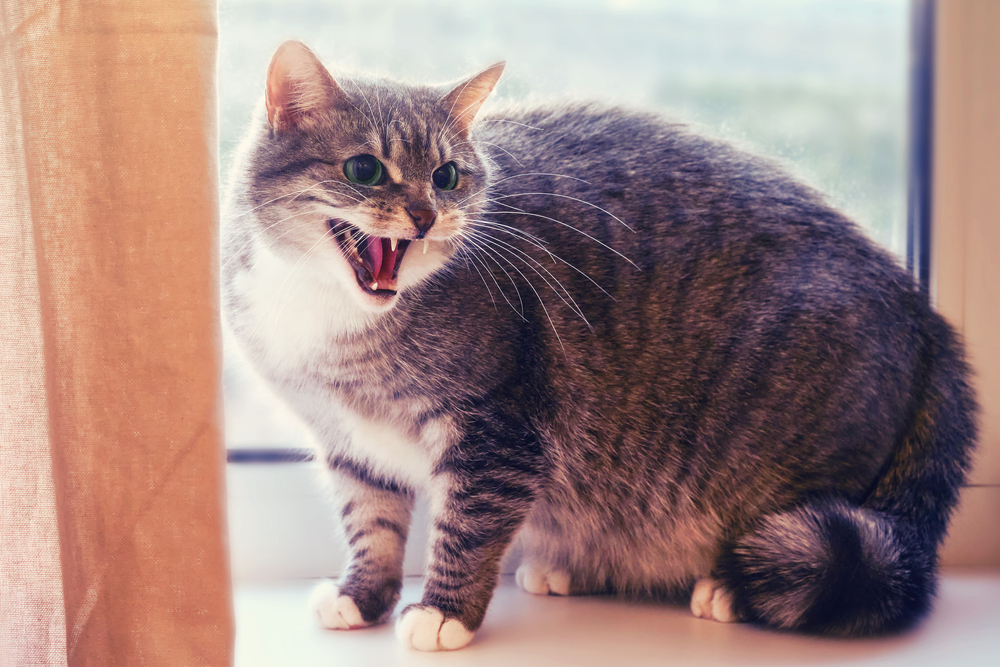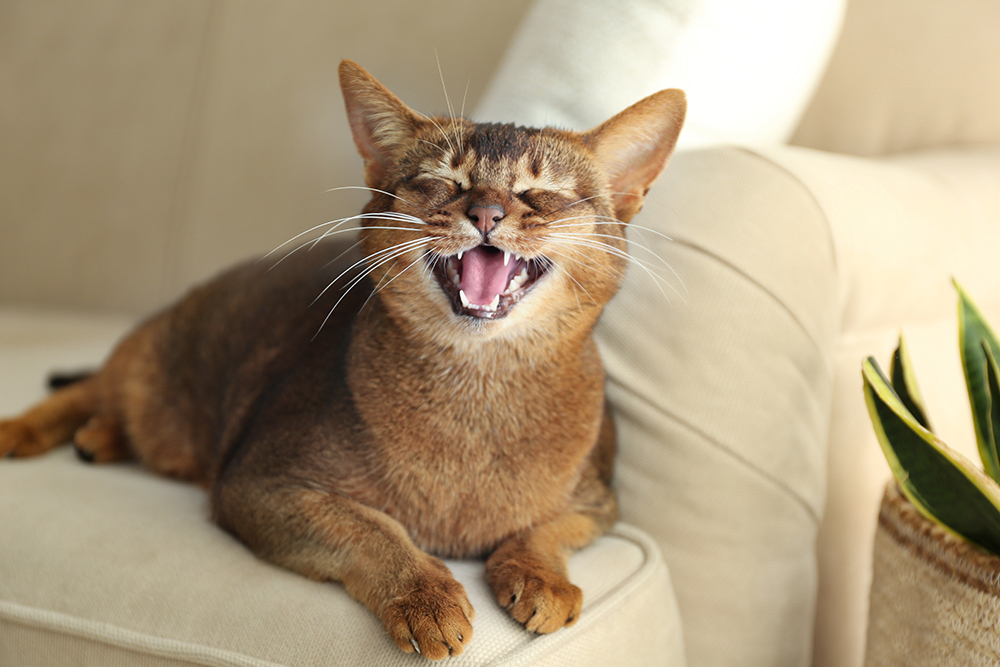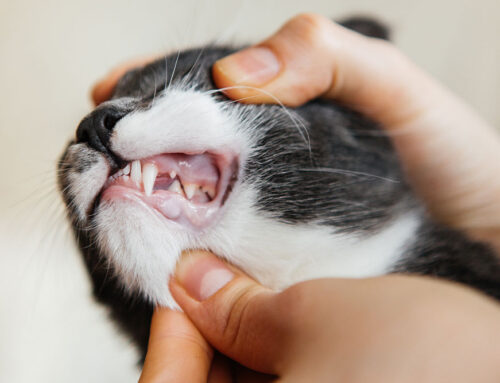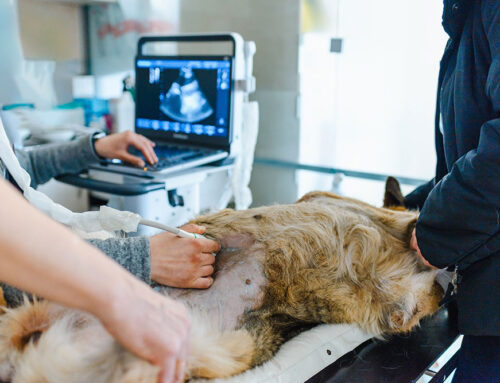The Mystery of the Meow: Medical and Behavioral Causes of Cat Vocalization
A cat’s meow is one of the most familiar sounds in a home. From soft trills to insistent cries, vocalizing is a normal way cats communicate with their families. But when the meows grow louder, longer, or more frequent than usual, it often leaves owners puzzled- or frustrated during sleepless nights.
At Cobb Veterinary Clinic in Elgin, IL, our team often sees cats brought in for “just meowing too much,” only to uncover issues ranging from hyperthyroidism to arthritis pain or even stress-related behaviors. Because cats rarely show obvious signs of illness, changes in vocalization can be one of the earliest clues that something is wrong.
This guide explores the most common medical and behavioral reasons cats become overly vocal, along with practical steps for restoring peace in your home.
Defining “Excessive” Meowing
Every cat has its own “normal” voice. Some cats chirp and trill to greet family members, while others rarely vocalize outside of mealtimes. Excessive meowing, however, goes beyond a cat’s usual personality. It might involve:
- Meowing every few minutes for hours at a time
- Vocalizing all night long, disrupting sleep
- Crying at random intervals, seemingly without cause
- Loud, mournful wails instead of soft meows
The key is recognizing changes from your cat’s baseline. A quiet cat who suddenly becomes noisy or a talkative cat whose tone shifts dramatically may be signaling discomfort or illness. Red flags become even more serious if paired with appetite loss, hiding, or changes in litter box use.
Medical Reasons Cats Raise Their Voice
Health problems are among the most common causes of sudden vocal changes. Illnesses that alter hormones, increase blood pressure, affect the heart, cause pain, or impact the nervous system can all make cats more vocal.
Common medical causes include:
- Hyperthyroidism – A frequent issue in older cats. Signs include weight loss despite a strong appetite, restlessness, and an unkempt coat. AAHA guidelines outline how this condition is diagnosed and managed.
- Hypertension (high blood pressure) – Can cause sudden blindness, dilated pupils, or disorientation, often accompanied by loud meowing. This is a common complication of Chronic Kidney Disease.
- Cognitive dysfunction (feline dementia) – Senior cats may wander, vocalize at night, or appear confused. Colorado State University explains the signs to watch for.
- Pain – Arthritis and dental disease are silent but painful conditions. Cats may paw at the mouth, refuse to jump, or groom less. AAHA’s resource on pain signs can help owners spot subtle changes.
- Heart disease – Certain arrhythmias or heart conditions can cause distress, weakness, or fainting. Some heart disease also leads to blood clots, which cause sudden pain, paralysis, and intense vocalization.
- Neurological disease or brain tumors – Less common, but may cause circling, seizures, or dramatic personality changes. NC State provides an overview.
- Hunger due to illness – Conditions like hyperthyroidism, diabetes, or malabsorption syndromes can increase appetite, leading to persistent vocalization.
If your cat’s meowing is unusual or persistent, a sick-pet visit is the fastest way to uncover the cause. Blood work, blood pressure measurement, and imaging can often provide answers quickly.
Behavioral Triggers and How to Fix Them
When illness is ruled out, behavior and environment often explain vocal changes. Cats are sensitive to routine, territory, and attention, and changes in any of these can lead to louder voices.
- Attention-seeking – Cats learn which sounds make humans respond. If every meow earns food or cuddles, the habit escalates. Feed meals at consistent times, reward quiet behavior, and redirect energy with interactive play.
- Anxiety or stress – New pets, moving furniture, or even outdoor smells can make cats unsettled. Provide safe hiding spots, elevated perches, and pheromone diffusers to create security. The Indoor Pet Initiative has excellent enrichment ideas.
- Boredom – Under-stimulated cats may meow out of frustration. Rotate puzzle feeders, add bird-watching perches, or make simple homemade toys.
- Outdoor frustration – Many indoor cats vocalize because they want access to the outside world. Safe solutions include leash walks or catios that allow fresh air and exploration without risk.
- Hunger – Some cats meow persistently for food. Auto-feeders, satiety diets, hunting feeders, or treat-dispensing balls can help manage hunger and provide mental stimulation.
- Multi-cat conflicts – Tension between household cats often leads to meowing, hissing, or litter box issues. To reduce conflict, provide one litter box per cat plus one extra, place them in different areas, and set up multiple feeding stations. Follow AAHA guidance on feline tension for safe reintroductions.
Across all households, increasing exercise, play, and snuggle time helps reduce stress and vocalization. Wand toys, climbing trees, and structured play sessions benefit every cat, but are especially important in multi-cat homes where extra attention reduces competition and rivalry.
If these steps don’t help, our behavioral counseling team can create a personalized plan.
The Diagnostic Path
Veterinarians usually follow a stepwise process to find the cause of vocal changes:
- History and exam – Includes weight check, dental exam, thyroid palpation, and pain assessment.
- Lab screening – Blood work and urinalysis to uncover hidden conditions.
- Advanced testing – Blood pressure checks, radiographs, or neurological exams when indicated. Sharing video clips of unusual behaviors is extremely helpful.
- Behavior review – If medical issues are ruled out, lifestyle factors and enrichment opportunities are assessed.
Why You Shouldn’t Ignore Excessive Vocalization
Ignoring excessive meowing can have serious consequences. Hyperthyroidism can progress to heart disease and muscle wasting. Stress may trigger cystitis or over-grooming. Heart disease may go undetected until an emergency arises. And ongoing nighttime noise disrupts human sleep, putting strain on the human-animal bond. Prompt sick-pet visits protect both your cat’s health and your family’s wellbeing.
Frequently Asked Questions
Is medication always necessary?
Not always- but when thyroid disease, pain, hypertension, or heart disease is involved, medicine often provides quick relief.
Will my cat ever stop meowing entirely?
No. The goal is not silence, but restoring vocalization to a normal, healthy level.
Can diet reduce meowing?
Yes. Balanced nutrition, satiety diets, timed meals, and puzzle feeders can help reduce frustration. Our nutritional counseling team can design a customized plan.
How soon will I see improvement?
Medical conditions often improve within two weeks of treatment if caught early enough. Behavioral issues may take four to six weeks of consistent management.

When to Seek Emergency Care
Contact our urgent and emergency care team immediately if your cat experiences:
- Sudden increase in meowing paired with new symptoms
- Blindness or bumping into objects
- Open-mouth breathing or rapid breathing paired with vocalization
- Collapse, seizures, or inability to rise
Quick action in these cases can be lifesaving.
A Calmer Home Starts with a Conversation
Excessive meowing is your cat’s way of asking for help. Whether the root is medical, behavioral, or environmental, solutions are available. Schedule a wellness and preventative visit, request behavioral counseling, or reach out via our contact page. Together, we can uncover the cause and restore harmony in your home.






Leave A Comment